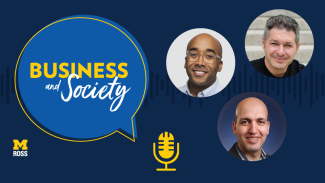Investigating cognitive and motivational proximal outcomes in a randomized clinical trial of writing about the future self to reduce drinking
Authors
Lindgren, K. P., Baldwin, A. S., Kross, E., Ramirez, J. J., Tristao, T., Peterson, K. P., Teachman, B. A., Wiers, R., Neighbors, C.
Authors
Lindgren, K. P., Baldwin, A. S., Kross, E., Ramirez, J. J., Tristao, T., Peterson, K. P., Teachman, B. A., Wiers, R., Neighbors, C.
Source
Alcohol: Clinical and Experimental Research
From the Laboratory to Daily Life: Preliminary Evidence That Self-Distancing Training Buffers Vulnerable Individuals Against Daily Rumination and Depression Over Time
Authors
Orvell, A., Bruehlman - Senecal, E., Vickers, B., Kross, E., & Aydu k, O.
Authors
Orvell, A., Bruehlman - Senecal, E., Vickers, B., Kross, E., & Aydu k, O.
Source
Psychology of Consciousness: Theory, Research, and Practice
Learning the rules of the game: The role of generic “you” and “we” in shaping children’s interpretations of norms.
Authors
Orvell, A., Elli, G., Umscheid, V., Simmons, E., Kross, E., Gelman, S.A.
Authors
Orvell, A., Elli, G., Umscheid, V., Simmons, E., Kross, E., Gelman, S.A.
Maturing Out: Between- and Within-Persons Changes in Social-Network Drinking, Drinking Identity, and Hazardous Drinking Following College Graduation
Authors
Lindgren, K., Baldwin, S., Peterson, K., Ramirez, J.J., Teachman, B., Kross, E., Wiers, R., & Neighbors, C.
Authors
Lindgren, K., Baldwin, S., Peterson, K., Ramirez, J.J., Teachman, B., Kross, E., Wiers, R., & Neighbors, C.
Source
Clinical Psychological Science
Self-Reflection at Work: Why it Matters and How to Harness its Potential and Avoid its Pitfalls
Authors
Kross, E., Ong, M, & Ayduk, O.
Authors
Kross, E., Ong, M, & Ayduk, O.
Source
Annual Review of Organizational Psychology and Organizational Behavior
Sense of purpose and strategies for coping with anxiety across adulthood
Authors
Pfund, G., Strecher, V., Kross, E., & Hill, P.L.
Authors
Pfund, G., Strecher, V., Kross, E., & Hill, P.L.
Source
The Journal of Gerontopsychology and Geriatric Psychiatry
Sensory emotion regulation
Authors
Rodriguez, M., & Kross, E.
Authors
Rodriguez, M., & Kross, E.
Source
Trends in Cognitive Sciences
Writing About the Future Self to Shift Drinking Identity: An Experimental Investigation
Authors
Lindgren, K. P., Baldwin, S. A., Kross, E., Ramirez, J. R., Peterson, K. P. , Tristao, T., Teachman, B. A., Wiers, R. A., & Neighbors, C.
Authors
Lindgren, K. P., Baldwin, S. A., Kross, E., Ramirez, J. R., Peterson, K. P. , Tristao, T., Teachman, B. A., Wiers, R. A., & Neighbors, C.
An Event-Related Potential Investigation of Distanced Self-Talk: Replication and Comparison to Detached Reappraisal
Authors
Webster, C., Berg, M., Kross, E., & Moser, J.
Authors
Webster, C., Berg, M., Kross, E., & Moser, J.
Source
International Journal of Psychophysiology
Distanced self-talk increases rational self-interest.
Authors
Gainsburg, I., Sowden, W.J., Drake, B., Harrold, W., & Kross, E.
Authors
Gainsburg, I., Sowden, W.J., Drake, B., Harrold, W., & Kross, E.
Do social network sites influence well-being? The extended active-passive model
Authors
Verduyn, P. & Kross, E.
Authors
Verduyn, P. & Kross, E.
Source
Current Directions in Psychological Science
How Spanish speakers express norms using generic person markers
Authors
Salvador, C., Orvell, A., Kross, E., & Gelman, S.
Authors
Salvador, C., Orvell, A., Kross, E., & Gelman, S.
What “you” and “we” say about me: How small shifts in language reveal and empower fundamental shifts in perspective
Authors
Orvell, A., Gelman, S. A., & Kross, E.
Authors
Orvell, A., Gelman, S. A., & Kross, E.
Source
Social and Personality Psychology Compass
Examining emotional tool use in daily life
Authors
Weidman, A. C.,& Kross, E.
Authors
Weidman, A. C.,& Kross, E.
Source
Journal of Personality and Social Psychology
Authors
Berg, M., Kitayama, S., & Kross, E.
Authors
Berg, M., Kitayama, S., & Kross, E.
Source
Journal of Experimental Social Psychology
Talking to yourself - you’ve got a friend in you
Source
The Philadelphia Inquirer
Authors
Verduyn, P., Nino G., & Kross, E.
Authors
Verduyn, P., Nino G., & Kross, E.
What we would (but shouldn’t) do for those we love: Universalism versus Partiality in Responding to Others’ Moral Transgressions
Authors
Soter, L., Berg, M., Gelman, S., & Kross., E.
Authors
Soter, L., Berg, M., Gelman, S., & Kross., E.
Authors
Verduyn, P., Schulte-Strathaus, J., Kross, E., & Hulsheger, U.
Authors
Verduyn, P., Schulte-Strathaus, J., Kross, E., & Hulsheger, U.
Source
Computers in Human Behaviour
Why being introspective is a double-edged sword
Why Venting When You Have Problems Feels Good—and Why It Doesn’t Work
Distanced self-talk changes how people conceptualize the self.
Authors
Gainsburg, I., & Kross, E.
Authors
Gainsburg, I., & Kross, E.
Source
Journal of Experimental Social Psychology
Distanced self-talk enhances goal pursuit to eat healthier.
Authors
Furman, C. R., Kross, E., & Gearhardt, A. N.
Authors
Furman, C. R., Kross, E., & Gearhardt, A. N.
Source
Clinical Psychological Science
Authors
Orvell, A., Vickers, B., Drake, B., Verduyn, P., Ayduk, O., Moser, J., Jonides, J., & Kross, E.
Authors
Orvell, A., Vickers, B., Drake, B., Verduyn, P., Ayduk, O., Moser, J., Jonides, J., & Kross, E.
Source
Clinical Psychological Science
Authors
Guevarra, D., Moser, J., Wager, T., & Kross, E.
Authors
Guevarra, D., Moser, J., Wager, T., & Kross, E.
Authors
Weidman, A., Sowden, W., Berg, M., & Kross, E.
Authors
Weidman, A., Sowden, W., Berg, M., & Kross, E.
Source
Personality and Social Psychology Bulletin
Authors
Fujita, K., Orvell, A., & Kross, E.
Authors
Fujita, K., Orvell, A., & Kross, E.
Source
Policy Insights from Behavioral and Brain Sciences
Authors
Verduyn, P., Gugushvili, N., Massar, K., Taht, K., & Kross, E.
Authors
Verduyn, P., Gugushvili, N., Massar, K., Taht, K., & Kross, E.
Source
Current Opinion in Psychology
Authors
Kross, E., Verduyn, P., Costello, C., Sheppes, G., Jonides, J., & Ybarra, O.
Authors
Kross, E., Verduyn, P., Costello, C., Sheppes, G., Jonides, J., & Ybarra, O.
Source
Trends in Cognitive Sciences
When Facebook and finals collide: Procrastinatory social media usage predicts enhanced anxiety.
Authors
Sternberg, N., Luria, R., Vickers, B., Kross, E., & Sheppes, G
Authors
Sternberg, N., Luria, R., Vickers, B., Kross, E., & Sheppes, G
Source
Computers in Human Behavior
Authors
Orvell, A., Kross, E., Gelman, S.
Authors
Orvell, A., Kross, E., Gelman, S.
Source
Proceedings of the National Academy of Sciences of the USA
Handbook of Emotion Regulation, Third Edition
Authors
Kross, & Ayduk, O.
Authors
Kross, & Ayduk, O.
Source
Distancing: What it is, How it Works, and Where to Go Next
James J. Gross and Brett Ford
Handbook of Emotion Regulation, Third Edition
Authors
Gueverra, D., Kross, E., & Moser, J.
Authors
Gueverra, D., Kross, E., & Moser, J.
Source
Harnessing Placebo Effects to Regulate Emotions
James J. Gross and Brett Ford
Applications of Social Psychology
Authors
Kross, E & Cazaubon, S
Authors
Kross, E & Cazaubon, S
Source
How does social media influence people’s emotional lives?
J.P. Forgas, W.D. Crano, and K. Fiedler
Chatter: The Voice in Our Head, Why It Matters, and How to Harness It






